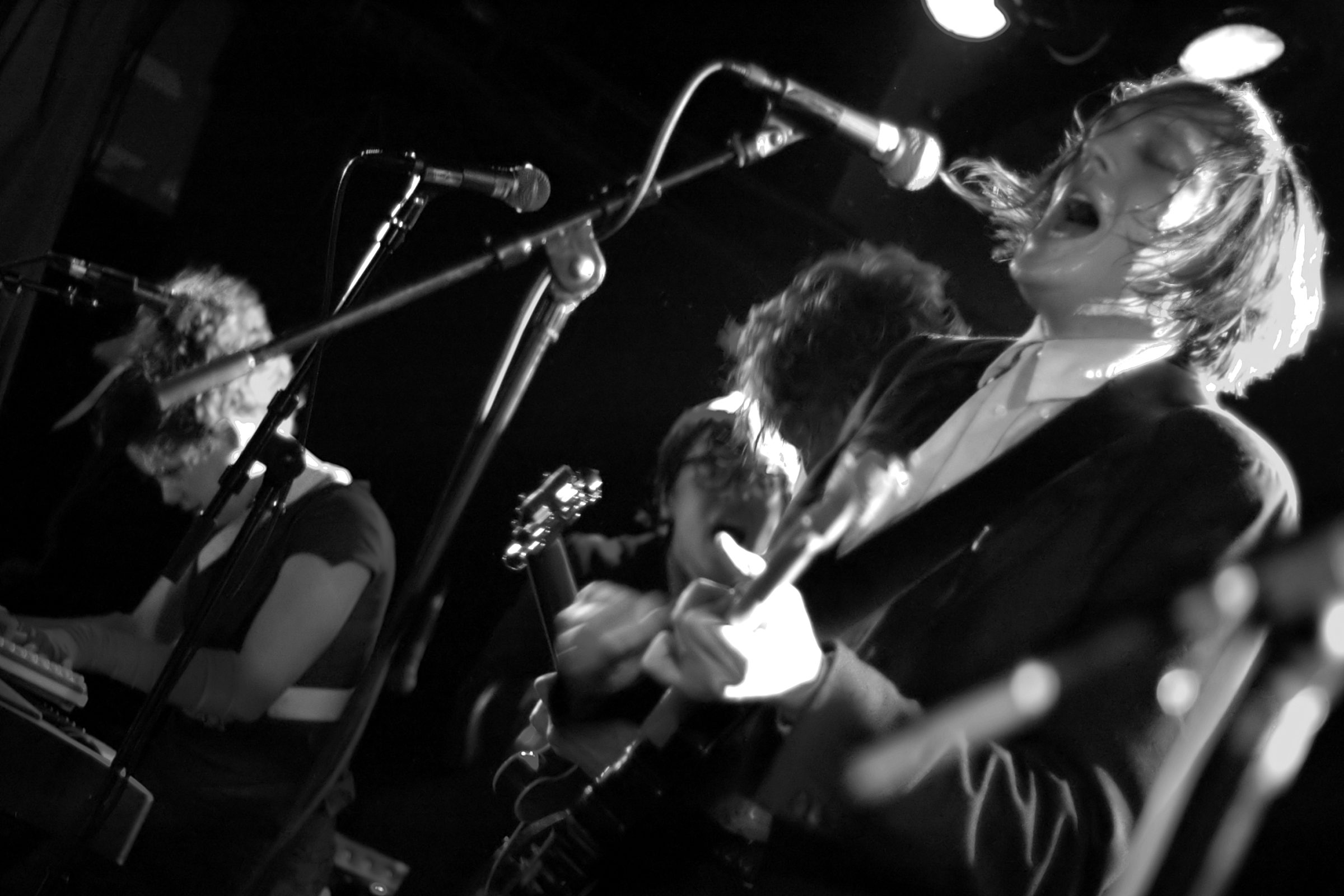
★★★☆☆
Arcade Fire don’t lack ambition. The band’s new album, WE, explores weighty topics across varied production, with more direction than any of their albums since 2010’s The Suburbs. Still, and despite standouts, it’s just ever so slightly ‘eh’.
I’m not sure when Win Butler, his wife Régine Chassagne, and the rest of Arcade Fire decided to expand the scope of their music quite so far. I always enjoyed them most when they wrote about, and found meaning in, the mundane. Nonetheless, the ambition of this album, alone, is to be admired. Not quite as extravagant as their last effort, Everything Now, WE still defies convention, and most importantly, this time the music’s actually pretty good.
WE’s 40 minutes, spread across 10 songs, simultaneously sounds like four tracks and fourteen. On the one hand, the album flows seamlessly from one song to another, instrumentals continuing despite songs ending. Conversely, within songs, the production switches drastically and occasionally even stops. Single songs are odysseys – ‘End of The Empire I-III’ and ‘Age of Anxiety II (Rabbit Hole)’ being the perfect examples. It’s no doubt by design. Sometimes it works, sometimes it doesn’t, but this is an album that cannot be broken down by individual songs, but rather by broad chapters, each almost exploring a new musical genre entirely of its own.
WE opens with the two parts of ‘Age of Anxiety’ – the album’s first chapter, and its worst. The songs are contradictory and the production does not suit the voice of frontman, Win Butler. He sounds flat over the simple piano melodies that open the album, and whatever strange whispery, ad-lib sensation is going on behind him could be done without. That said, part two of ‘Age of Anxiety’ is an improvement. Moving into a synth filled, electronic inspired song, it’s not classic Arcade Fire, but it works.
From there, however, we move far closer to old school Arcade Fire. The two – or four, depending on how you look at it – of ‘End of The Empire’ are brilliant. In particular, the latter half of the first instalment is a stand out. The band revealed that parts of the song date back to recordings of their 2004 album, Funeral. By using them again now, they’ve created a wistful anthem, drawing on sounds that date back long before 2004. The influence of The Beatles, and John Lennon’s ‘Imagine’ in particular is clear.
There is no nuance to the Empire supposedly ending. It’s America. Both Los Angeles and New York are looked back on fondly, places that once offered something to the band, but no longer inspire them the same way. “Standing at the end of the American Empire” ends both the first verses.
 From tender, soft spoken verses, the song rapidly elevates into a grander range, fit for a stadium. This is continued in the second part of the song, and into the album’s next chapter: ‘The Lightning’. Both tracks in this chapter hold merit, and I enjoyed thoroughly when released as singles, but lack the electricity of Arcade’s Fire best music.
From tender, soft spoken verses, the song rapidly elevates into a grander range, fit for a stadium. This is continued in the second part of the song, and into the album’s next chapter: ‘The Lightning’. Both tracks in this chapter hold merit, and I enjoyed thoroughly when released as singles, but lack the electricity of Arcade’s Fire best music.
While I found ‘The Lightning’ singles underwhelming amidst the full project, last week’s single, ‘Unconditional I (Lookout Kid)’ is only better with a full listen. It marks another change in direction, to a folk sounding, singalong track. This is continued in the final two of the album’s songs, and though they try to end on a rising culmination, it still fails to get you out of your seat.




